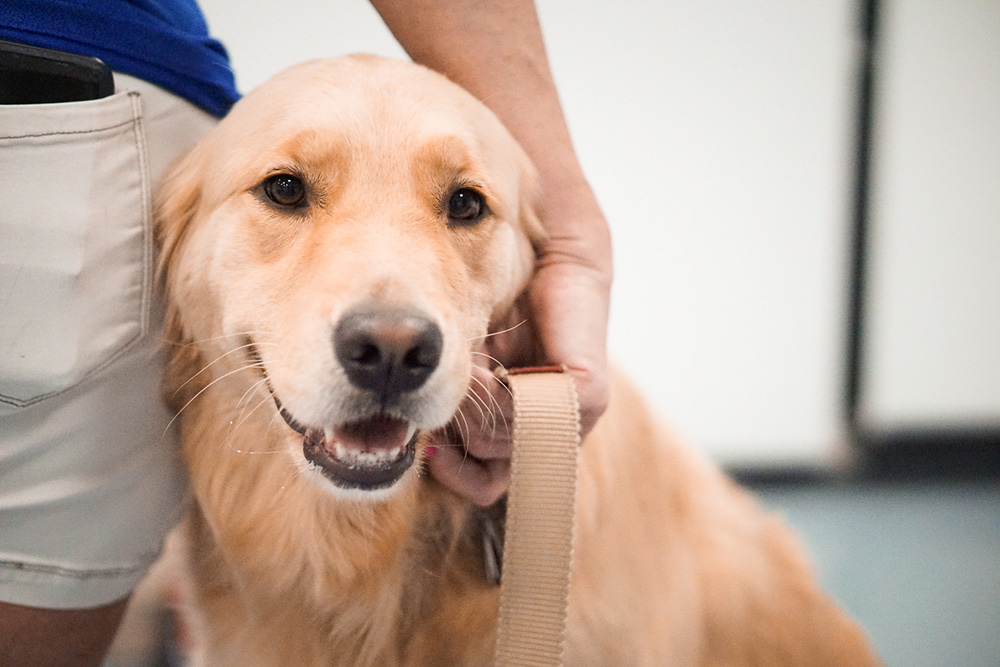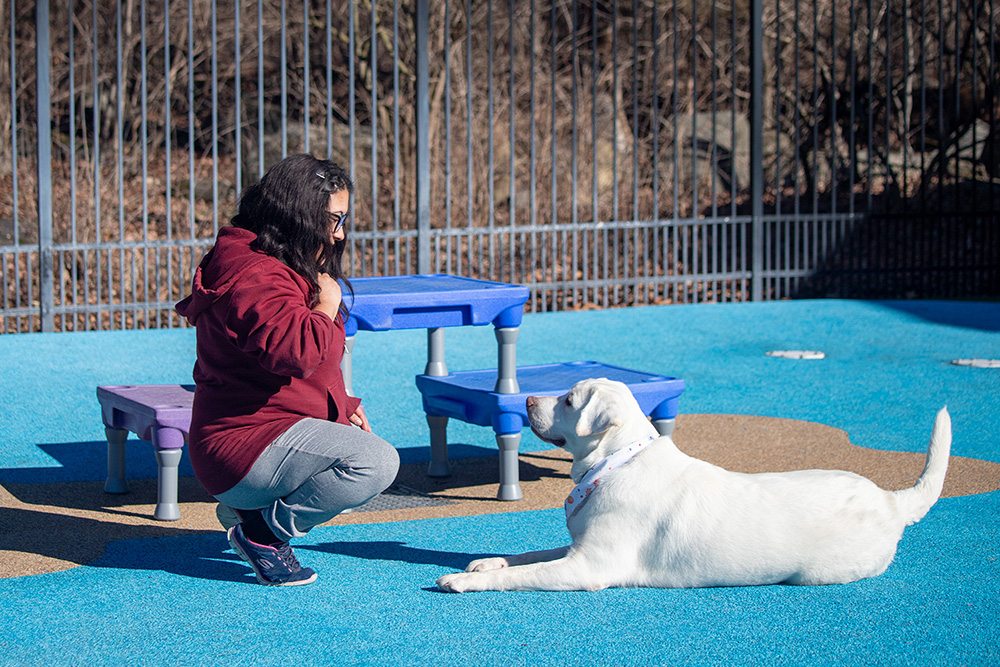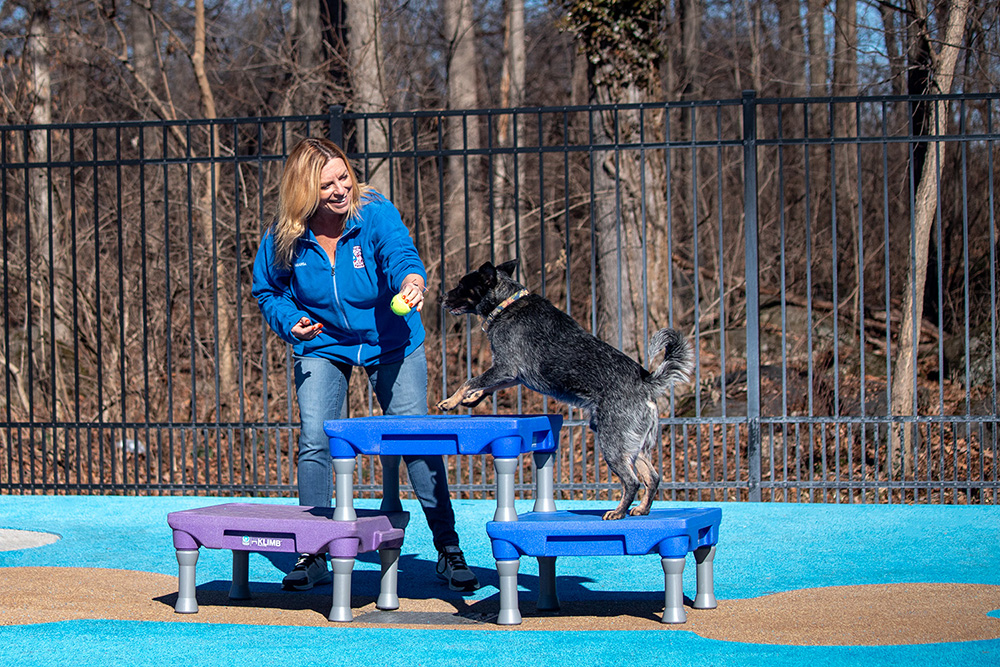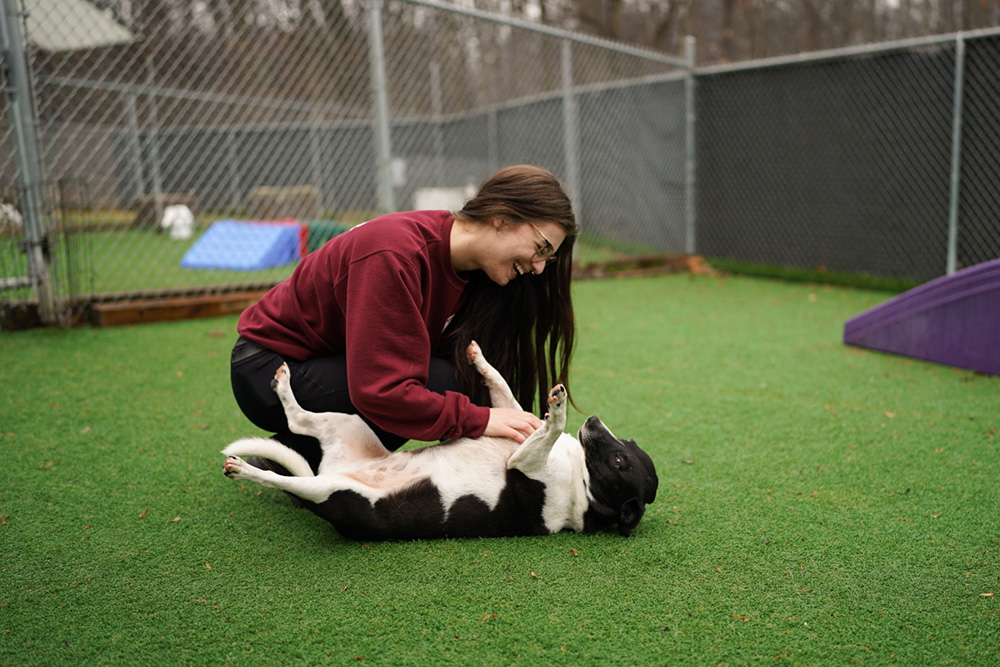As a dog trainer at Playful Pups Retreat, I know having a nervous dog can be challenging, both for the pet and the owner. Just like humans, dogs can experience anxiety and fear, which can manifest in various behaviors. Understanding why your dog is nervous and learning how to help them cope is essential for their well-being and your bond with them.
How can you spot and understand nervous behavior?
Nervous behavior in dogs can stem from various factors, including genetics, past experiences, lack of socialization, or even medical conditions. Common signs of nervousness in dogs include:
- Trembling or shaking: Dogs may tremble or shake when they feel anxious or scared.
- Panting and pacing: Anxious dogs may exhibit excessive panting and pacing, unable to settle down.
- Avoidance or hiding: Some dogs may try to avoid certain situations or hide when they feel nervous or overwhelmed.
- Excessive barking or whining: Nervous dogs may bark or whine excessively, seeking reassurance or expressing their discomfort.
- Destructive behavior: Dogs may engage in destructive behavior like chewing or digging when they’re feeling anxious.
Tips to Help Your Nervous Dog
- Create a Safe Space: Designate a quiet, comfortable area in your home where your dog can retreat when they feel anxious. Fill this space with their favorite toys, blankets, and treats to make it a calming environment.
- Gradual Exposure: Introduce your dog to new experiences and environments gradually. Exposing them to different stimuli in a controlled manner can help desensitize them and reduce anxiety over time.
- Positive Reinforcement: Use positive reinforcement techniques to reward calm and confident behavior. Treats, praise, and affection can help reinforce positive associations with situations that trigger anxiety.
- Routine and Structure: Establishing a consistent daily routine can provide your dog with a sense of security and predictability. Consistent mealtimes, exercise, and play sessions can help reduce anxiety and promote overall well-being.
- Exercise and Mental Stimulation: Regular exercise and mental stimulation are essential for managing anxiety in dogs. Engage your dog in activities they enjoy, such as walking, running, or playing games like fetch or puzzle toys.
- Calming Aids: Consider using natural calming aids such as pheromone diffusers, calming supplements, or pressure wraps, such as a Thunder Shirt, to help alleviate your dog’s anxiety. Consult with your veterinarian before using any supplements or medications.
- Behavioral Training: Enroll your dog in obedience classes or work with a certified dog trainer to address behavioral issues associated with anxiety. Training techniques such as desensitization and counterconditioning can help modify your dog’s response to stressful stimuli.
- Stay Calm and Patient: Dogs are highly intuitive animals and can pick up on their owner’s emotions. Stay calm and patient when interacting with your nervous dog, and avoid reinforcing anxious behavior with excessive attention or coddling.
Our innovative Pawsitive Experiences Program is here to help with your nervous pup!
Our Pawsitive Experiences program is a unique 2-week session that offers a detailed curriculum specifically designed to build confidence and carefully, and safely, socialize your pup in new situations and with new people and other dogs.
The program offers a 3 day a week, Monday, Wednesday, and Friday program OR 2 day a week program on Tuesday and Thursday for 2 weeks. At the conclusion of the two weeks, we may suggest another week to keep moving in a good direction. If you pup has made great progress and is ready to graduate into one of our many training or daycare programs, we will provide you with our best professional assessment which program is best for your dog.
This Full-Day program allows the shy dog more time to settle into our environment, and learn to trust and develop a relationship with our trainers.
Having a nervous dog can be challenging, but with patience, understanding, and proper management techniques, you can help your furry friend feel more secure and confident. By addressing the underlying causes of their anxiety and providing them with the time and support they need, you can strengthen your bond with your dog and ensure their overall well-being.
Give us a call to learn more or check out our Pawsitive Experiences Program here.
Written by: Maria Stouffer, Training Director Playful Pups Retreat, and owner of Full Potential Dog Training




